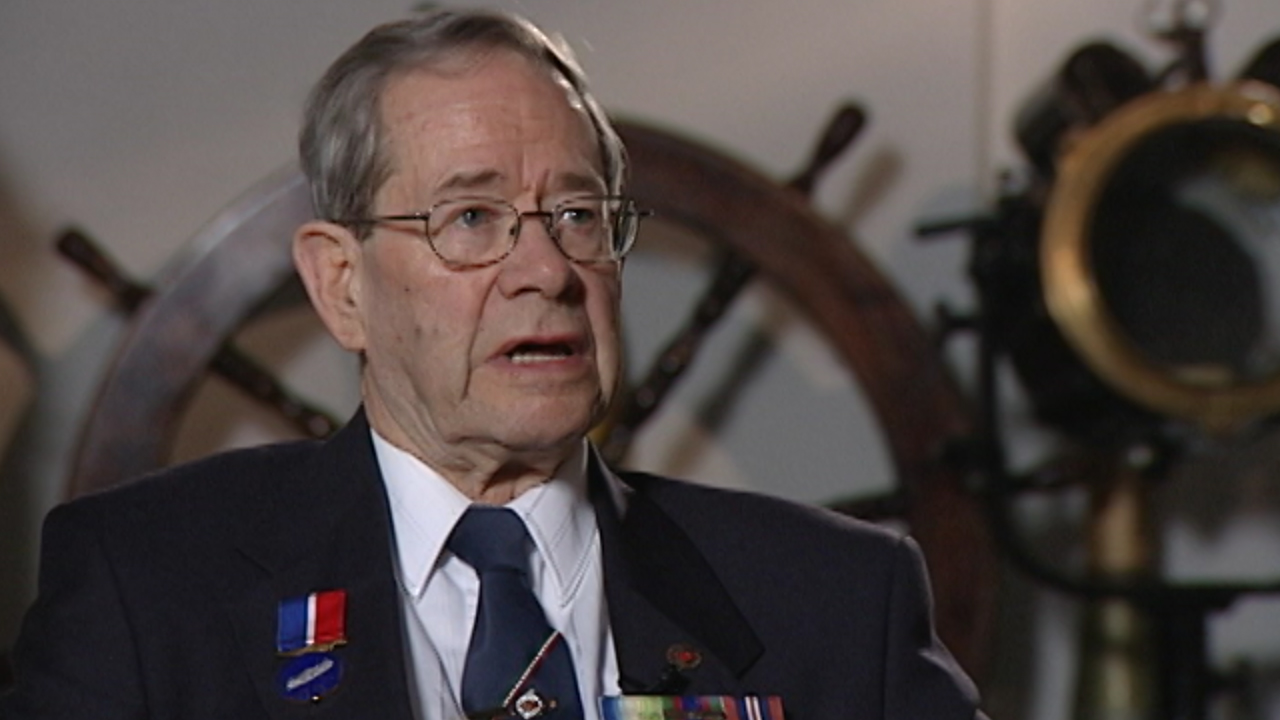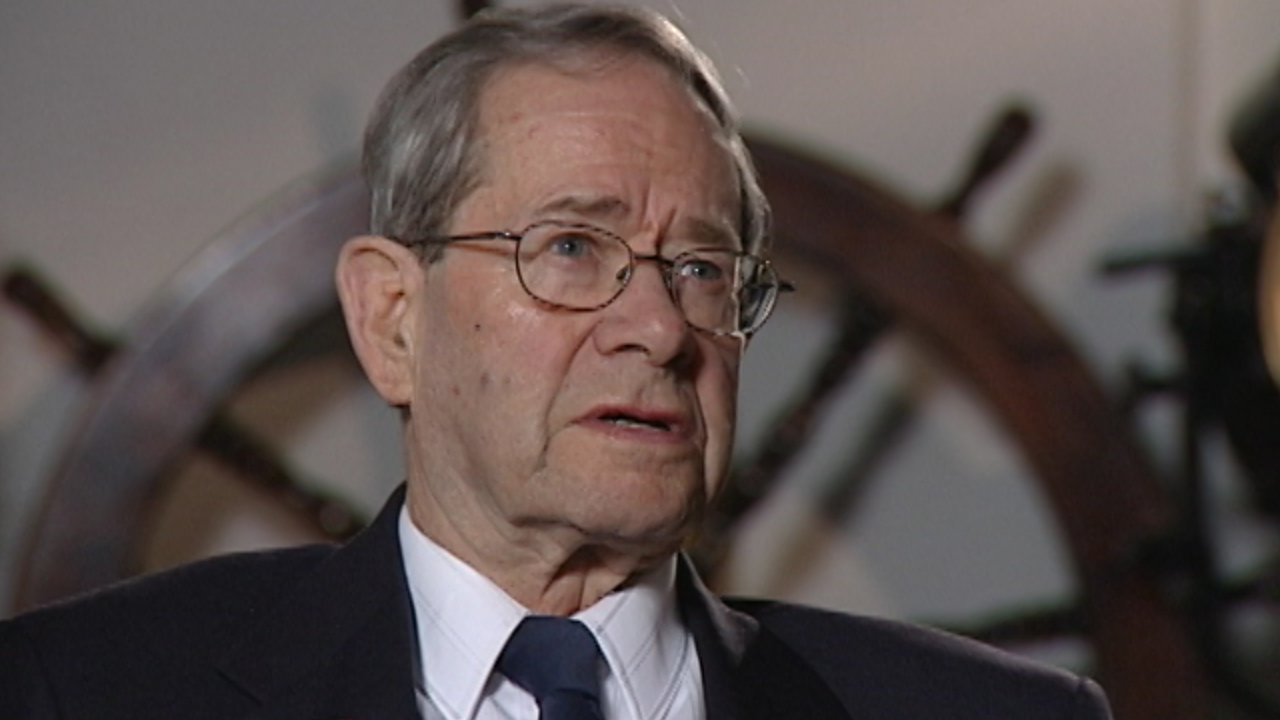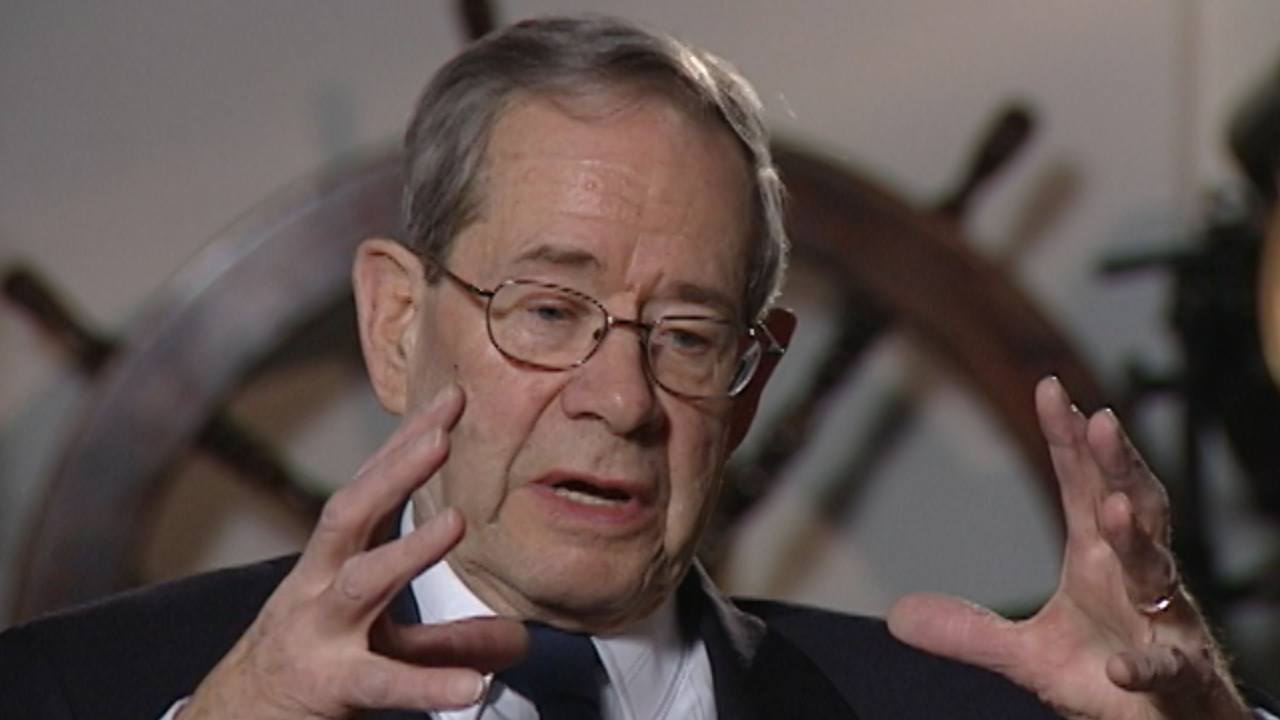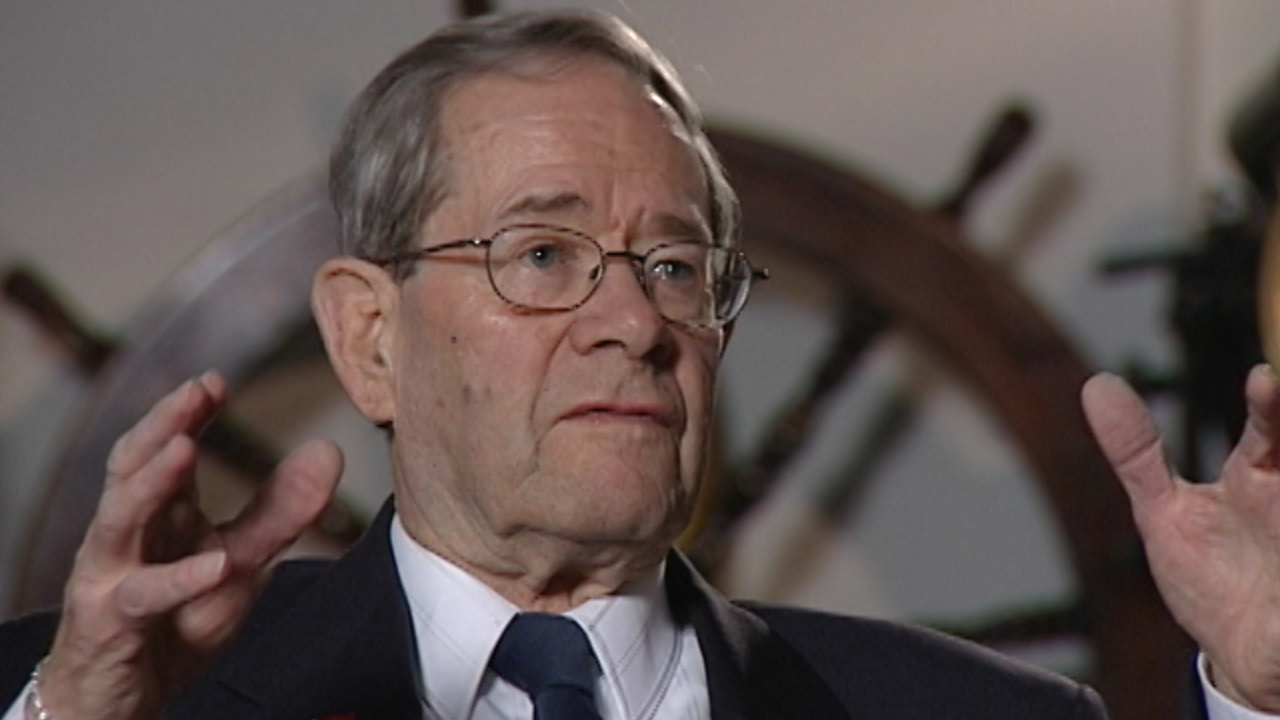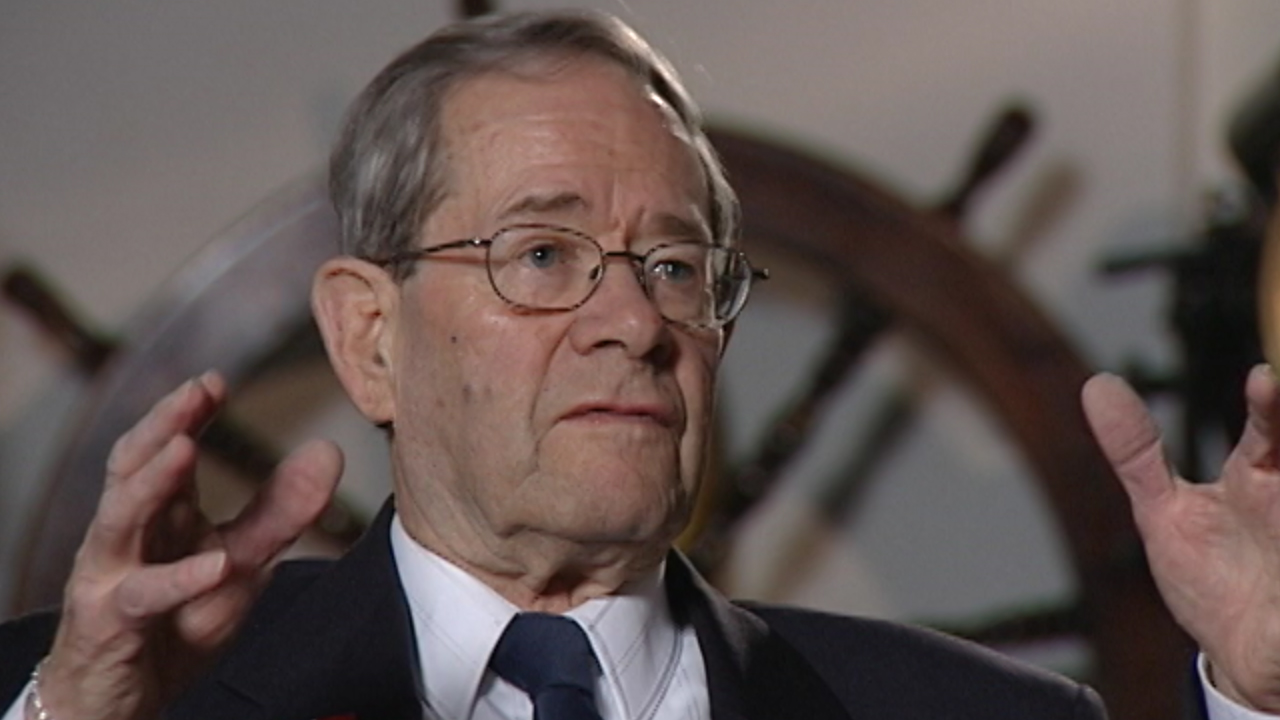Foul Weather and Risks
Heroes Remember
Foul Weather and Risks
We were a fairly large convoy coming out of,
I believe it was Montreal.
We had a full load of munitions and we
formed out, outside the Gulf in the Atlantic
and we were heading out. We didn't know
really where we were going so we went
down the coast and we rendezvoused with
an American convoy coming out of New York
and the sight was just unbelievable because
it was all this maneuvering around.
I think we had about fifty ships on our convoy.
So there was this maneuvering around to
let these American convoy ships get into
position cause we were sort of going this
direction and then they had to go this
way to go towards the UK.
That's where we were heading,
unknown to us at the time,
but eventually we ended up in England.
Well, prior to forming up for that
particular convoy, we hit a fog in the
St. Lawrence River and thinking back on that,
that was kind of scary because we dropped anchor.
It was just about around, oh I think it was a
little further from Quebec City and heavy fog,
and there was just constant blowing of whistles
and warnings that there was a fog,
other ships to let them know where we were
positioned and I thought you know,
I didn't think then. Today I often think back,
if we'd have been hit by another ship it would
have been an awful explosion,
because we were just loaded down.
Getting on a little further, I'm trying to think,
on that particular trip we were carrying,
I'm not sure whether it was six or eight,
probably eight tanks on upper deck.
And the way they hold those tanks down,
they sort of welded a cleat around the track
that held it in position and we hit quite a large,
strong North Atlantic gale and I can remember
sleeping in my bunk one night and
hearing this awful noise up top and what it was,
one of these tank cleats had broken loose
because of the shifting of the ship and the
rolling, but the deck hands managed to latch it
down and everything was under control like.
That was a memory that I won't forget.
So we were lucky to get there because
when I think of the storm we were just
thrown around something crazy.
Of course, everybody was too,
it was a large convoy.
Related Videos
- Date modified:



